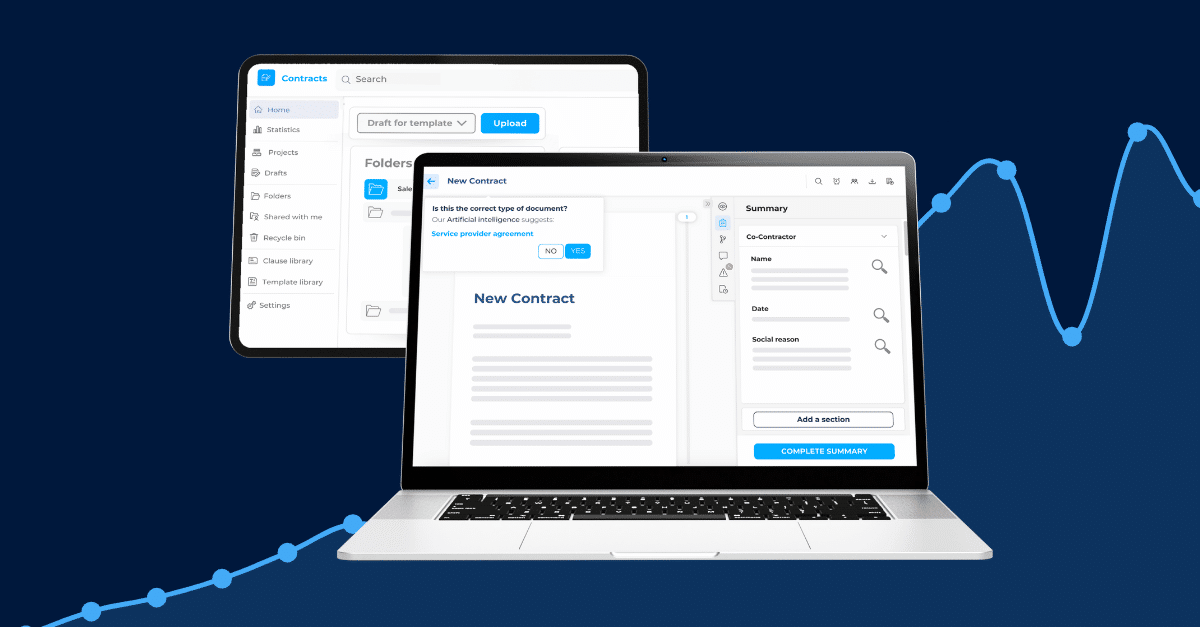In the current business environment, contracts form the foundation of commercial relationships. Yet many organizations struggle to extract meaningful insights from these critical documents. Contract analytics emerges as a solution to this challenge, offering businesses the ability to transform static agreements into strategic assets.
Contract analytics represents a significant advancement in how companies manage their contractual relationships. By leveraging artificial intelligence and machine learning technologies, organizations gain unprecedented visibility into their contract portfolios, enabling data-driven decision-making and risk mitigation.
Understanding Contract Analytics
Contract analytics refers to the systematic examination of contract data using advanced technologies to extract valuable information and insights. This approach transforms traditional contract management by applying sophisticated analysis techniques to identify patterns, risks, and opportunities within contractual documents.
The Evolution of Contract Management
Traditional contract management relied on manual review processes, which were time-consuming and prone to error. As contract volumes increased, this approach became increasingly unsustainable. Contract analytics evolved as a response to these limitations, offering automated solutions for contract review and analysis. Modern contract analytics platforms employ artificial intelligence and machine learning algorithms to analyze contractual language, extract key data points, and identify potential risks or opportunities. These systems process information at scale, reviewing thousands of contracts in a fraction of the time required for manual review.
Core Technologies Driving Contract Analytics
Several key technologies power effective contract analytics solutions:
- Artificial Intelligence: AI forms the foundation of contract analytics, enabling systems to understand contractual language and identify relevant information.
- Machine Learning: These algorithms improve over time, learning from user interactions to enhance accuracy and performance.
- Natural Language Processing: NLP allows systems to interpret contractual language, understanding context and meaning within documents.
- Data Extraction: Automated extraction capabilities identify and capture critical information such as dates, parties, obligations, and financial terms.
These technologies work together to transform static contract documents into structured data that businesses analyze for strategic insights.
Key Components of Effective Contract Analytics
Successful contract analytics implementations share several essential components that enable organizations to maximize the value of their contract data.
Comprehensive Data Extraction
Effective contract analytics begins with thorough data extraction. Advanced systems automatically identify and extract key information from contracts, including:
- Parties and signatories.
- Effective and termination dates.
- Financial terms and obligations.
- Renewal provisions.
- Compliance requirements.
- Risk factors and liabilities.
This extraction process transforms unstructured contract text into structured data points that organizations analyze and report on.
Risk Identification and Assessment
Contract analytics platforms excel at identifying potential risks within agreements. These systems flag problematic clauses, non-standard terms, and compliance issues that might otherwise remain hidden in complex contractual language. Through automated contract review, businesses identify risk factors across their entire contract portfolio, enabling proactive management of potential issues before they escalate into problems.
Performance Monitoring and Reporting
Analytics platforms provide ongoing monitoring of contract performance, tracking key metrics and generating reports that highlight areas for improvement.
These capabilities enable organizations to:
- Track compliance with contractual obligations.
- Monitor key dates and deadlines.
- Analyze financial performance against contractual terms.
- Generate customized reports for stakeholders.
Through comprehensive reporting, contract analytics transforms raw data into actionable intelligence that drives business decisions.
Benefits of Contract Analytics for Enterprises
Organizations implementing contract analytics realize numerous benefits that impact operations across multiple departments.
Enhanced Visibility and Control
Contract analytics provides unprecedented visibility into contractual relationships. This transparency enables better control over obligations, commitments, and opportunities. With a comprehensive view of their contract portfolio, businesses make informed decisions based on accurate, up-to-date information.
Improved Risk Management
By automatically identifying potential risks within contracts, analytics platforms help organizations mitigate issues before they become problems. This proactive approach to risk management reduces exposure to financial and compliance risks, protecting the organization from potential liabilities.
Operational Efficiency
Automated contract analysis dramatically reduces the time required for contract review and management. Tasks that previously took days or weeks to complete manually now finish in hours or minutes. This efficiency allows legal and procurement teams to focus on strategic activities rather than administrative tasks.
Financial Optimization
Contract analytics helps organizations identify revenue opportunities and cost-saving potential within their agreements. By analyzing pricing terms, discount structures, and payment conditions across contracts, businesses optimize their financial performance and identify opportunities for improvement.
Strategic Decision Support
Perhaps most importantly, contract analytics transforms contract data into strategic insights that support business decisions. By understanding contractual patterns and trends, organizations make informed choices about vendor relationships, customer engagements, and market opportunities.
Implementing Contract Analytics in Your Organization
Successfully implementing contract analytics requires a strategic approach that addresses both technological and organizational considerations.
Assessing Organizational Needs
Before selecting a contract analytics solution, organizations should assess their specific needs and objectives. This assessment includes:
- Identifying key contract types and volumes.
- Determining critical data points for extraction.
- Understanding reporting requirements.
- Evaluating integration needs with existing systems.
This assessment provides the foundation for selecting the right contract analytics platform for your specific requirements.
Selecting the Right Solution
When evaluating contract analytics software, consider these factors:
- AI Capabilities: Look for solutions with robust artificial intelligence features, including natural language processing and machine learning.
- Integration Options: The platform should integrate seamlessly with existing contract lifecycle management (CLM) systems and other enterprise applications.
- Customization Flexibility: Every organization has unique contract analysis needs; select a platform that adapts to your specific requirements.
- Security Features: Contract documents contain sensitive information; ensure your analytics platform provides appropriate security protections.
Implementation and Adoption
Successful implementation extends beyond technology to include organizational adoption. Consider these steps:
- Start with a pilot program focusing on a specific contract type or department.
- Provide comprehensive training for users across legal, procurement, and finance teams.
- Develop clear workflows that incorporate analytics into existing processes.
- Establish metrics to measure success and ROI.
Through careful planning and execution, organizations maximize the value of their contract analytics investment.
The Strategic Value of Contract Analytics
Contract analytics represents a transformative approach to contract management, enabling organizations to derive strategic value from their contractual relationships. By leveraging artificial intelligence and machine learning technologies, businesses gain insights that drive better decisions, reduce risks, and improve operational efficiency.
As contract volumes and complexity continue to increase, contract analytics will become increasingly essential for organizations seeking to maintain competitive advantage. Forward-thinking companies recognize that contracts contain valuable data waiting to be unlocked – and contract analytics provides the key.
The use of AI-powered Contract Management Software
Companies are increasingly adopting AI contract review tools to automatically analyze contracts and extract key details, reducing manual effort and improving accuracy. By highlighting risky clauses, checking for missing terms, and comparing agreements against internal standards, AI makes it easier to improve contract oversight and ensure compliance.
See how AI contract review works
Combined with powerful contract analytics, these tools give legal teams full visibility into every contract, track performance across the portfolio, and uncover trends that improve contract strategies.
Unlock powerful contract analytics with interactive dashboards that let you see trends, spot risks, and improve decision-making in one central view. Instead of spending hours reading through lengthy documents, teams can focus on higher-value tasks, speed up negotiations, and gain confidence in their decisions.
Contract Management Software
For organizations ready to transform their approach to contract management, implementing a robust contract analytics solution offers substantial benefits across the enterprise. From legal and procurement to finance and strategic planning, contract analytics delivers insights that drive business success.
Explore how DiliTrust Governance Suite’s contract management with integrated AI review employs advanced analytics capabilities to help organizations unlock the full potential of their contract data while ensuring security and compliance.
Want to learn more about DiliTrust’s Contract Management Solution? Book your call with us today



